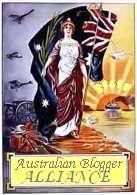A Law unto Themselves
F or most of the 20th century there was a kleptomaniac on Pitcairn Island. His name was Morris Christian, but everyone called him "Mento", short for mental.From the age of 14, the kind-hearted but mentally unstable Christian stole an enormous range of things from homes on the tiny Pacific rock, which was settled by the Bounty mutineers in 1790. Mento also suffered rages during which he threatened other islanders with knives and guns, killed cats and vandalised public property.
Each time he was caught, the islanders would hold a trial in their white wooden public hall, convict Mento under one of their local ordinances, lock him up in their little jail and count their belongings in preparation for his return to society.
A visiting diplomat from Britain, Pitcairn's colonial ruler, reported in 1941 that Mento, then 34, begged to be taken into medical care in Fiji and complained that his own relatives "treat him like a dog". Neither Britain nor the Seventh-Day Adventist Church, which ministered to Pitcairn, were willing to help, so Mento died on the island in the early 1980s, so ending a miserable life in and out of jail.
His story demonstrates how official neglect contributed to the most serious of Pitcairn's problems: allegations of rampant child sexual abuse that have made the island notorious. When British detectives arrived on Pitcairn in the '90s to investigate allegations that island men were routinely abusing children, the long-dead Mento was repeatedly accused by female Pitcairners of making sexual advances to them as little girls. But his alleged groping, flashing and public masturbation seemed minor compared with allegations of gang rape and incest by other Pitcairn men.
Last year, three British-appointed judges sailed to Pitcairn Island from their homes in Auckland and conducted a trial that enthralled the world. Via video link from a secret location in Auckland, a dozen former Pitcairn women told tearful stories of their childhoods on "Ha Rock", as it is known in the local dialect. The Pitcairn Island Supreme Court found six men guilty of child sex crimes committed between 1967 and 1996 and sentenced four to jail.
But the judges agreed that neither convictions nor sentences would formally begin until they also delivered verdicts on a crucial defence argument about the validity of the Pitcairn justice system. At that hearing, which took place in Auckland during the past 10 days, defence lawyers asked the court to rule the whole prosecution invalid and let the men go free on the grounds that Britain failed to inform the islanders that British law applied on Pitcairn, that serious sex crimes would be prosecuted or to ensure that Pitcairn had sufficient policing and systems of justice. The defence revealed formerly classified Foreign Office cables in which British officials acknowledged their partial responsibility for the crimes on Pitcairn.
There has always been a local magistrate on Pitcairn -- one of the islanders elected to the job by his peers -- but his job was confined to enforcing local ordinances on issues such as chopping down a neighbour's breadfruit tree or the rules for branding goats.
At the Auckland hearing, Crown prosecutors presented nearly 1600 pages of historical documents showing that the Pitcairners had always sought British help with problems too big for the local magistrate, including murder, divorce, trespassing and serious assault.
It wasn't until the '90s when the first person complained to police about child sex crimes on Pitcairn. It involved the 11-year-old Australian daughter of a Seventh-Day Adventist pastor who was posted to the island with his family. When he discovered his little girl had been assaulted by a Pitcairn man, he removed the entire family from the island and complained to British authorities, who dispatched George and another officer to begin the investigations that led to the trials.
The judges have retired to consider their verdict, which will determine whether the men go to jail or go free. The key question for the judges - and for Pitcairn Island - is whether official failure is a legitimate excuse for crime.
I have changed my opinion on this case twice. At first i was so shocked by all the allegations, read the transcripts etc and thought.....find em guilty lock em up for good. Then i had time to think about it and decided that if found guilty island law should kick in. I think thats' where i still stand today. All the people have lived so far out of reach, the religous undertones are just ridiculous. The women are treated like second class citizens yet know no better. The whole community live by island law. Many of the women didn't even want to press charges. How can these men be tried by British Law?






0 Comments:
Post a Comment
Subscribe to Post Comments [Atom]
<< Home